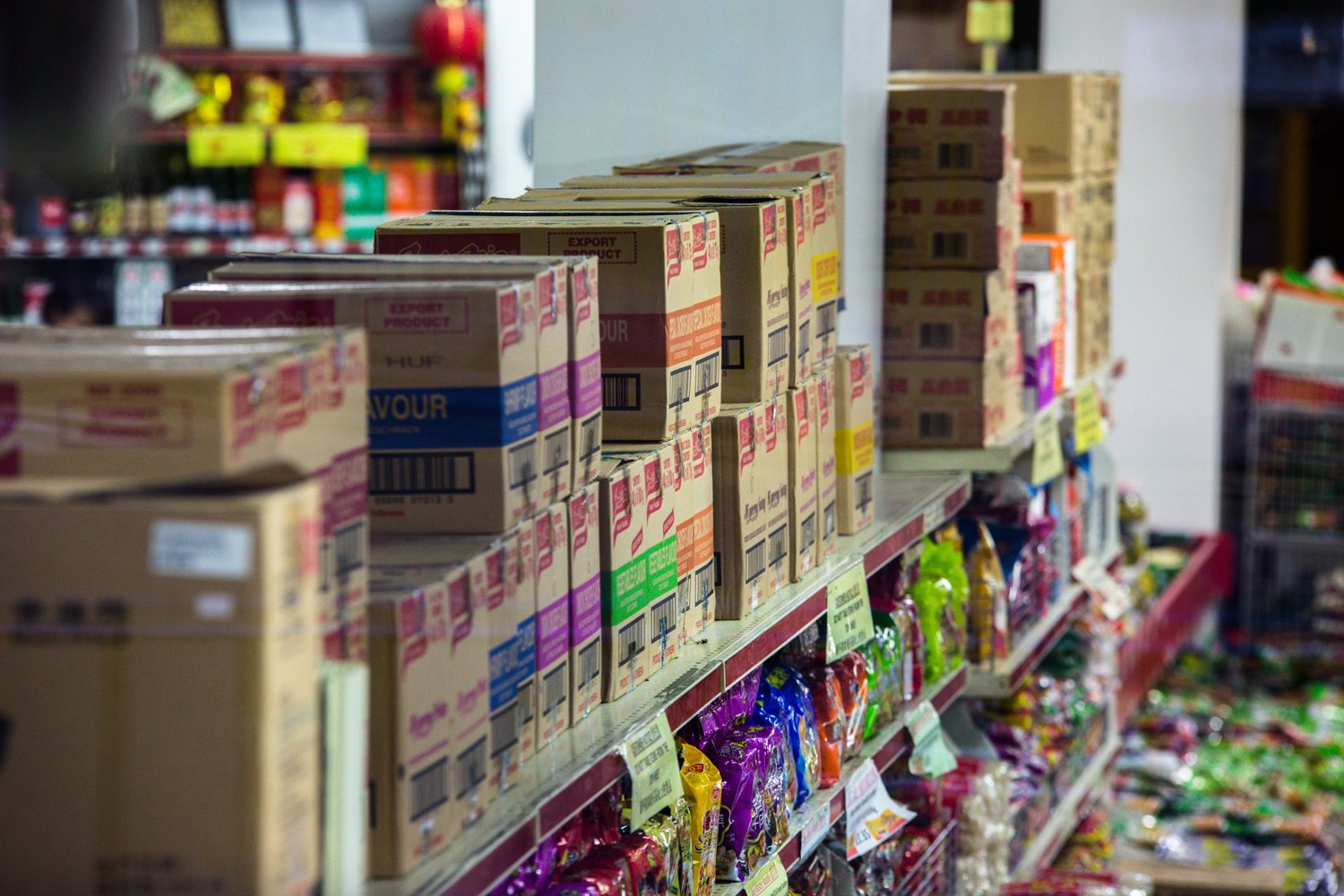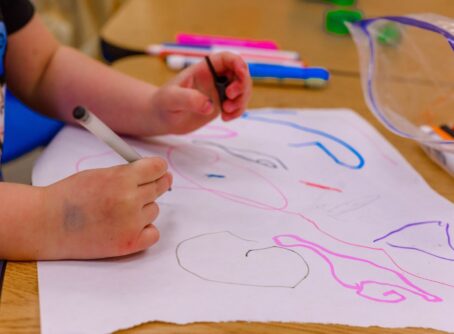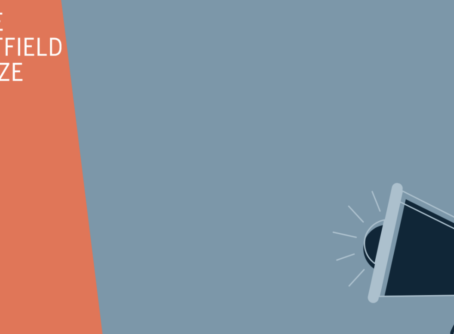
This is the first of the Hatfield Prize 2022 Op-Ed series. These articles include key takeaways from the policy reports each of the Hatfield Prize recipients researched and wrote, which can be read in full here.
After fleeing their homes for fear of violence and persecution last year, 302 refugees from many countries and an additional 321 Afghan evacuees resettled in the Buffalo, New York area. Sadly, for many of these refugees who dream of starting over in this country, food insecurity is a harsh reality.
While food insecurity is a persistent problem throughout the entire American population, refugees are hit hardest. For instance, in 2020, the USDA found that 10.5 percent of all households in the U.S. were classified as food insecure at some point during the year. However, in separate studies, refugee households were found to experience much higher rates of food insecurity. One case study of West African refugees who resettled in the Northeastern part of the U.S. found that just over half of the population was food insecure. Another study among Liberian refugees who arrived in the U.S. in the early 2000s reported a higher rate at 85 percent.
A lack of consistent access to food is a serious health concern for refugee populations and public health. Food insecurity places refugees at a higher risk than the general population for chronic diseases such as hypertension, diabetes and obesity. Food insecurity also carries significant social repercussions. Nutritional deficiencies contribute to low birth weights and cognitive development problems in children. Consequently, a report published by the International Journal of Modern Trends in Social Sciences wrote that better childhood nutrition would increase schooling outcomes and ensure better education. For adults, increased food security leads to better decision-making, improving labor productivity and leading to overall economic growth. Promoting food security for refugees in America is therefore a vital task to achieve their flourishing. So how can we do this?
Creating a more accessible food environment for refugees will require a holistic solution that addresses each of the unique barriers refugees face: economic constraints, limited access to transportation and language barriers. Buffalo, New York — nicknamed the “city of good neighbors” — provides a great example of how local government and civil society can work together to promote increased food security among refugee populations by addressing each of these barriers.
First, economic constraints must be addressed. Refugee incomes often fall below the national average in the years following initial resettlement. For instance, a report published by the Migration Policy Institute revealed that the median household income of refugees who arrived between 2009 and 2011 was $42,000, which is almost $8,000 lower than that of the U.S. born population. Foods that are culturally familiar to refugees are also much more expensive than other foods found in American grocery stores, creating an added challenge.
Communities can take steps to help ease the economic burden of food security for refugees in a few ways. Government agencies can strengthen existing food assistance programs such as the Supplemental Nutrition Assistance Program (SNAP), which serve as valuable safety nets for refugees whose budgets are stretched thin. In a small study done by Kiptiness and Dharod among Bhutanese refugees, one participant explained: “If there is not [a] food stamp, it is very difficult to buy things and prepare meals for [my] family.”
Nonprofit organizations can also help assist refugees in securing employment opportunities. Journey’s End Refugee Services in Buffalo is one example. Journey’s End offers refugees the opportunity to farm their own food and sell it through a program called “Green Shoots,” which serves as a source of supplemental income for the families.
Another way civil society can address refugee food insecurity is by getting community groups and churches involved in operating food pantries that carry culturally familiar food items for the refugees in their area. Provisions 139 on the West Side of Buffalo currently embodies this model. The food pantry provides translation and interpretation materials to refugees accessing their services, and carries foods that meet the specific cultural and dietary needs of the refugees in their community.
Secondly, government and civil society should work together to address the transportation barriers refugees face when trying to get to the store to pick up food. Due to the economic constraints of resettlement agencies, refugees often settle into low-income areas where access to fresh foods and produce are limited. These areas are often identified as food deserts. The USDA defines food deserts as communities that “lack stores that sell healthy and affordable food.” In these communities, the distance from grocery stores is often too far to walk and public transportation is unreliable and time consuming. Lack of transportation options, as well as unfamiliarity with the location, can prevent refugees from accessing the resources they need.
The Augustana Lutheran Church in Buffalo, New York, illustrates how communities can work together to improve refugee access to transportation. This church started a Refugee and Immigrant Driving Program in 2007, dedicated to helping refugees and immigrants obtain their driver’s licenses. Since its start, the program has helped over 100 people from 30 countries obtain driver’s licenses.
Lastly, to improve refugee food security, both government and civil society must address language barriers. Refugees who resettle to the U.S. speak a diverse range of languages. According to a study conducted by the Migration Policy Institute, in 2013 alone, refugees living in the U.S. spoke 162 different languages. Many refugees also have difficulty speaking English. In the same study, 58 percent of refugees were classified as having a limited English proficiency (LEP), even after living in the U.S. for 20 years. These language barriers make it much more difficult for refugees to navigate buying and preparing food in the U.S.
The New York State Office for New Americans (ONA) provides a perfect example of how government and civil society can work together to bridge the language barriers between refugees and their new communities. Through a program called Cell Ed, refugees are able to access free English tutoring at any time during the day. Jenny Munoz, who works with language access at ONA explains that although refugees may be isolated and face many transportation issues, they may be able to more easily access ESOL resources via cell phone. She emphasized: “We don’t think Cell Ed replaces an ESOL classroom, but we do think that it allows you to flexibly keep improving your English.”
Increasing refugee food security is a crucial task for Americans today that involves addressing economic challenges, transportation, and language barriers. Government and civil society organizations in Buffalo, New York, provide one example of how to do so successfully. The programs implemented in the “City of Good Neighbors” can be replicated in other cities that resettle large numbers of refugees. Additionally, citizens in these areas can advocate for policy changes and support civil society organizations that benefit refugee food security. Ultimately, through an intentional and cooperative effort, we can all make the U.S. a more welcoming and better home for refugees.
Grace Retz is a senior at Houghton College pursuing her bachelor’s degree in biology and international development, with minors in global health and political science. She will be completing her research for the Hatfield Prize during the spring semester of her senior year. Grace has been an active member of Journey’s End Tutoring, a club at her university that serves refugees in the surrounding community through English tutoring. She now serves as the club’s president, and is facilitating a home placement and setup project for a newly arriving refugee family in the coming spring. Grace has a combined interest in healthcare and cross cultural service, and plans to cultivate those passions through future degrees in nursing and global health.
ABOUT THE HATFIELD PRIZE
The Hatfield Prize is awarded annually to three student-faculty pairs from Council for Christian Colleges and Universities (CCCU) schools. Recipients conduct research on social policies that impact vulnerable children, families, and communities, and explore the impact of these policies in their local communities. This semester-long research project culminates in three policy reports that make recommendations for both government and civil society institutions in contributing to policies that promote flourishing communities. The Prize honors the legacy of the late Senator Mark O. Hatfield, who served as a United States senator from Oregon for three decades. Hatfield was known for his principled Christian faith and for his commitment to working across difference to find common ground.
Interested in applying for the 2023 Hatfield Prize? Know someone who might be interested? Find more information here.



